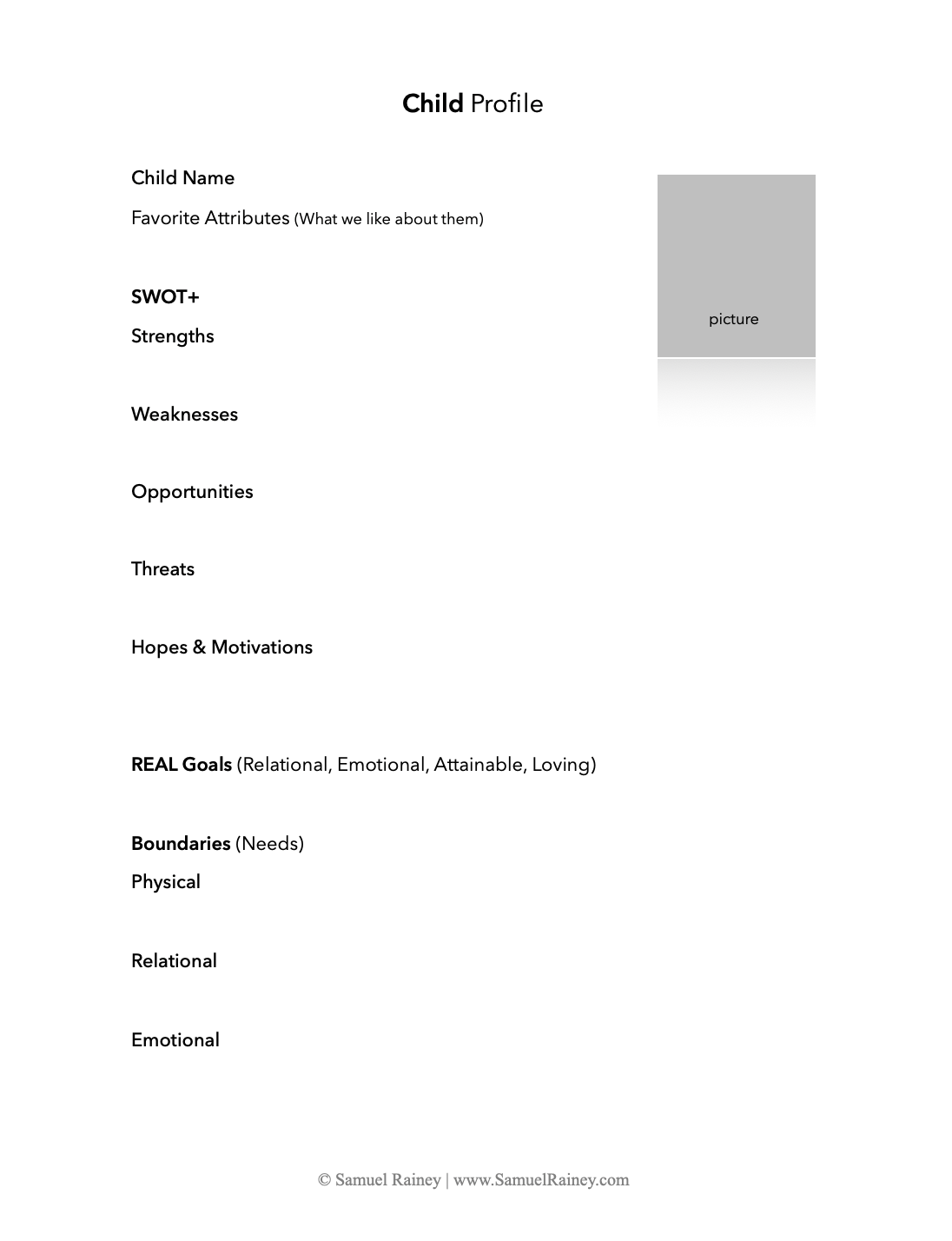Now that you’ve named your parenting style, created a SWOT+, and identified some goals, it’s time to put some structure into place about how to bring all of this together. Boundaries are the lifeblood of relationships because they provide guidelines for our needs to be met. Boundaries are what make it safe (or unsafe if there are none) to be in relationship together. Think of boundaries like roads. Sure we don’t have to use the roads, but it sure is easier, safer, and efficient to use them to get from point A to point B.
Kids and parents alike thrive on clear and consistent boundaries. These consistent boundaries help us to get our needs met. The goal here is to define some “roadways” that help everyone succeed and that you can follow through with in order to accomplish your goals.
The acronym PRESS is how to think through what kinds of needs we, and our kids, have. Boundaries require that we are willing to press pause and be flexible, but also to press through and be consistent. All of us, not just our kids, have needs in these five categories: Physical; Relational; Emotional; Spiritual; and Sexual. For the purpose of this parenting program, I’m going to focus on Physical, Relational, and Emotional. As you think through what kind of boundaries to set, consider unique boundaries for each individual kid.
Physical
Studies show that physical activity is the best natural remedy to combating anxiety and depression. The body needs to release the energy it is storing inside from all the stress, but it also needs to produce seratonin and dopamine (the calming and happy chemicals our bodies naturally produce). Both kids and parents need some kind of physically strenuous activity once a day, especially now that we’re all at home. I notice a marked difference in my kids attitudes when they have done something physical in nature (working out, running, jumping on trampoline, played a game of basketball, etc).
Example boundary: Andrew’s screen time increases by 5 minutes per day for every 10 minutes of physical activity.
Relational
This might be the most acute challenge that we are all facing today. Parenting can often feel like being a referee in a wrestling match with siblings and other family members. This section also has a lot to do with your parenting style. If you’re more of a “withdrawn” parent, think about relational boundaries that help you stay engaged and present with your kids. For instance, now that most of us are working from home or at home figuring out what to do for work, it’s easy to let work be an activity from the time you wake up to the time you go to bed. Have a set time that you engage work related matters, and have a time you engage in kids and family.
Example boundary: Because Josh needs 15-20 minutes per day of one on one time with a parent, we will spend this with him before bedtime each night.
Emotional
Helping our kids to identify what is emotionally motiving, what hurt and anger is, and how to express oneself intellectually and emotionally is a tall order. We are all emotional creatures, some of us have better access and language to these emotions than others. Two of my sons are on opposite ends of the spectrum in regards to feeling and expressing emotions, and I have to parent them differently.
Example boundary: When something difficult happens to/with Sara, we will sit down with her and have her draw out her feelings (depending on age, journaling or talking would be other ideas here).
These categories are guides to help you implement boundaries that will meet the various needs that are present. You don’t need to make a list in each and every category, and what you come up with might not “fit” inside of what I’ve mentioned above. That’s ok. The best results from this exercise will be what you can be flexible and consistent with implementing.
If you need help identifying appropriate boundaries, sit down with your spouse or friend and talk through what your needs are and what your kids’ needs are. If that’s not an option, give me a call. I can help clarify your families needs, and help you identify some positive areas of growth for you and your kids.
Wrapping this up, below is a sample worksheet that will put all 4 of these Quarantine Parenting exercises onto one page. This will be helpful for you and your spouse to revisit regularly as you parent your kids. To get a PDF version of this, click here


______________________________________


